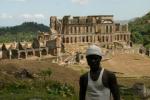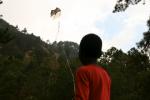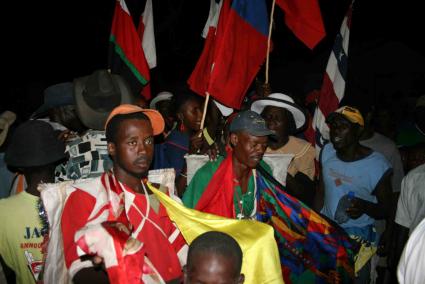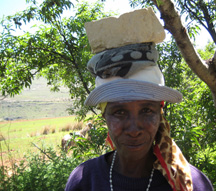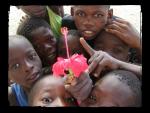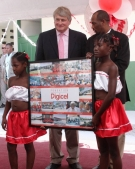(Almost) Open for Business: Marche La Coupe in Petionville
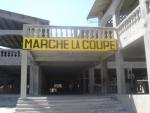 According to the Haiti Xchange site, the Haitian government announced the opening of a newly constructed marketplace on Route des Freres in Petionville. The idea is to reduce some of the congestion in Petionville, once one of Haiti's most polished neighborhoods. I like the boisterous street symphony of everday life, but Petionville is overflowing with street merchants. Giving them a safe, clean place to sell their goods seems a sensible move - provided they can get the licenses required to do so and that taxes are not excessive.
According to the Haiti Xchange site, the Haitian government announced the opening of a newly constructed marketplace on Route des Freres in Petionville. The idea is to reduce some of the congestion in Petionville, once one of Haiti's most polished neighborhoods. I like the boisterous street symphony of everday life, but Petionville is overflowing with street merchants. Giving them a safe, clean place to sell their goods seems a sensible move - provided they can get the licenses required to do so and that taxes are not excessive.



